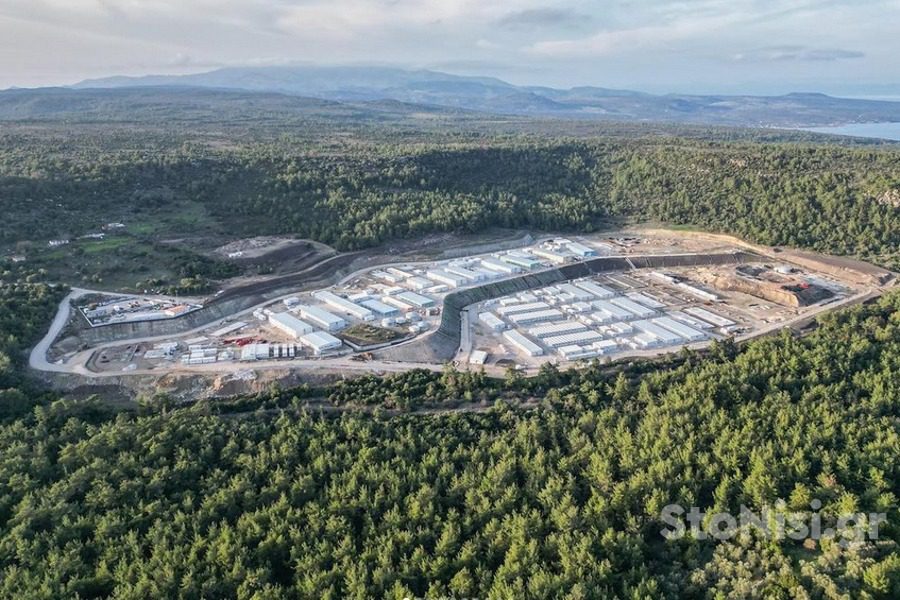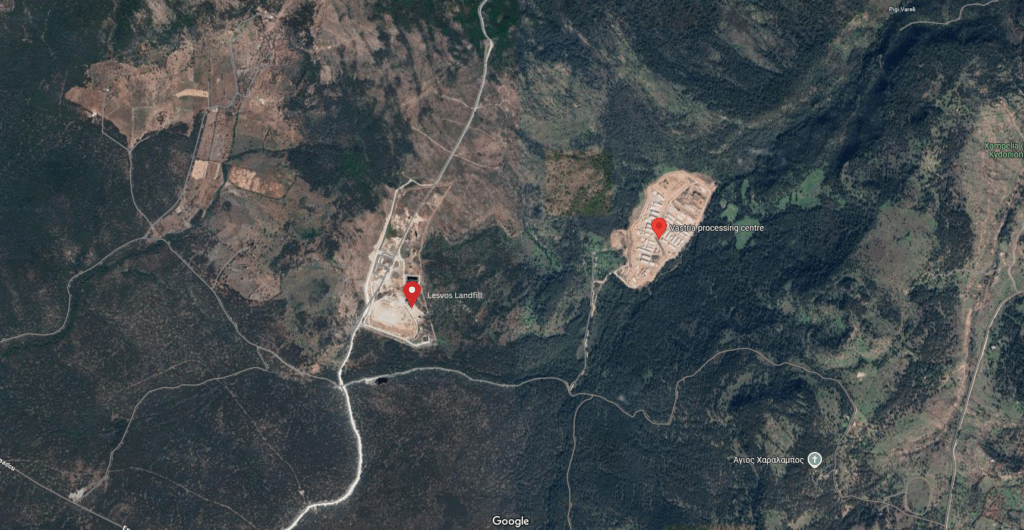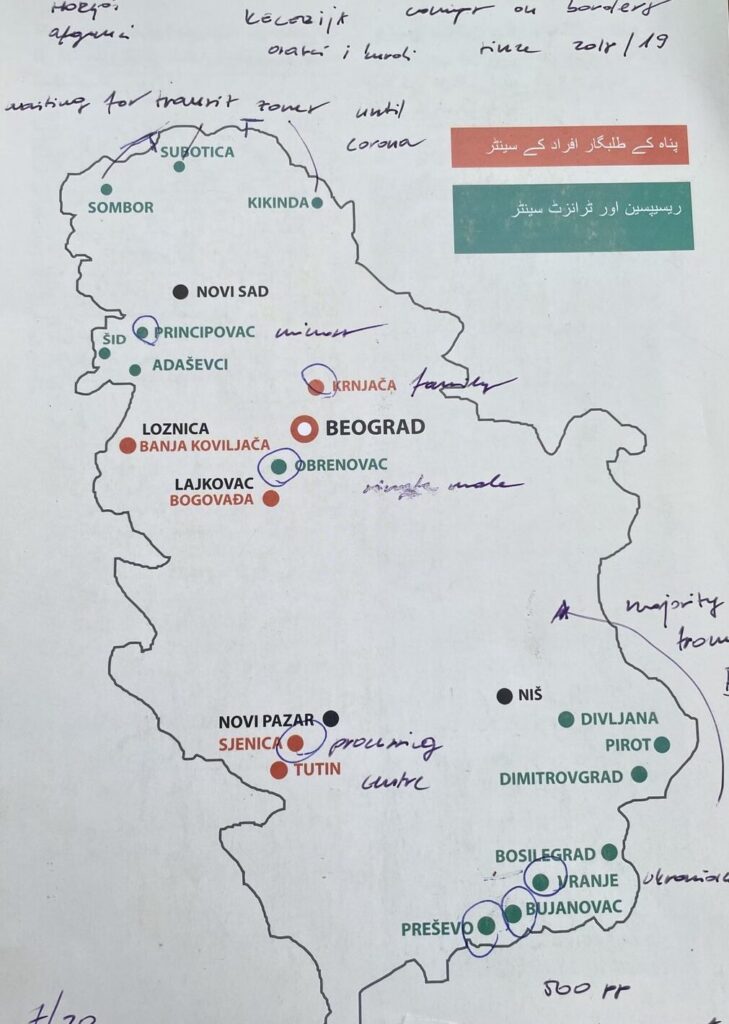Last week, I visited Lesvos as part of an excursion with students from the Department of Geography. Among the sites we visited was Vastria—the location of the island’s new camp, a facility that has not yet begun operation.

The camp is situated in a remote, forested area with no access to public transportation. We traveled by bus and, after leaving the paved road, continued for more than half an hour along a dirt road. When we reached the point where we were supposed to turn onto an even smaller dirt path leading to the camp, a police car blocked the entrance. The officers informed us that we were not allowed to proceed—despite the fact that the camp is not yet operational.
For those who will be confined there, the nearest village is approximately a 3.5-hour walk away, and the closest paved road about 2.5 hours on foot.
The camp is in close proximity to the island’s landfill. It feels as though everything the island wishes to hide—its waste, and the people deemed “waste”—has been buried deep in the forest.

Despite covering a vast area, the Vastria camp is completely concealed from the surrounding roads. No part of it is visible—it is as if it does not exist. Can such a dystopian place, so thoroughly isolated, truly be considered a reception site for refugees?
Initially, the camp was planned to accommodate 5,000 people—already separated into different categories according to the logics of migration management and assigned to different zones within the camp: 1,300 from the general population, 1,700 from vulnerable groups, and 2,000 in a pre-departure detention center. However, in a later decision (No. 109921/17.5.2021), it was projected that the facility could host up to 65,000 people.
Having visited nearly every camp in Greece over the past 20 years, I found Vastria to mark a shift in the paradigm of detention—already evident in its spatial characteristics, even before it begins operation.
Vastria in Court
The Region of North Aegean filed an appeal with the Council of State (Greece’s Supreme Administrative Court), which was upheld. The region argued that the project did not meet the legal requirements set out by existing environmental and forestry legislation. It also stressed that the site falls within a protected Natura 2000 area and is subject to forest conservation laws. In decision No. 1335/2023, the Council of State annulled the project’s permit due to the absence of an environmental impact study. The court also canceled approval for the construction of a new access road—at least eight meters wide—through 21,011 square meters of forested land. The Region of North Aegean appealed to the Supreme Administrative Court, requesting that all decisions permitting the construction of the Vastria facility be revoked on legal grounds.

